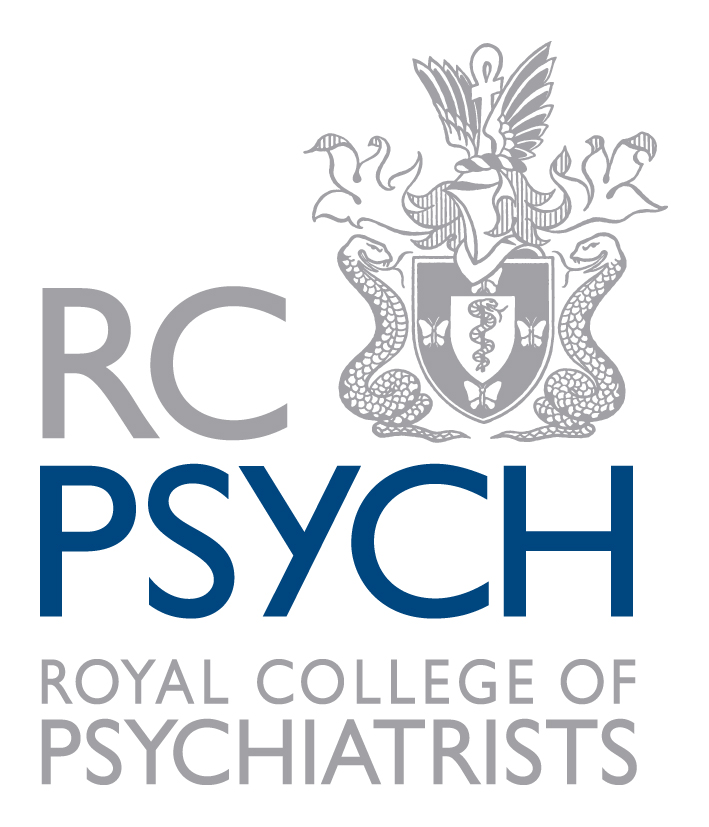CPD eLearning
CPD eLearning is the online learning resource for consultant psychiatrists and other mental health professionals from the Royal College of Psychiatrists.
As self-teaching and flexible working has become increasingly important, a growing demand for online learning has also developed. We are pleased to respond to this need by offering a wealth of online learning modules and podcasts covering a vast range of topics.
Our ever-growing list of modules and podcasts provides a flexible, interactive way of keeping up to date with progress in mental health, and complements the College's other long-established CPD activities, such as BJPsych Advances (formerly Advances in Psychiatric Treatment). All modules are written by experts in their field and are peer reviewed and edited to the highest standards. Modules last between 30 and 90 minutes, and we add new content and update existing content regularly.
Furthermore, College members may use CPD eLearning for up to 25 CPD credits (currently 50) in the UK. For more information about CPD, please read the College report (OP98): Continuing Professional Development: Guidance for Psychiatrists or visit the Continuing Professional Development area of the College website.
Integral to CPD activities is the requirement that psychiatrists will accomplish CPD in a variety of settings (see College Report OP98: Continuing Professional Development: Guidance for Psychiatrists).
Clinical - All educational activities that relate to the development of individual clinical and diagnostic skills or updating of specialist knowledge should be recorded in this category. An example would be attendance at a course approved by a medical Royal College.
Academic - Academic activities might include postgraduate teaching, educational supervision, examining and publishing. You do not need to work in an academic post to claim credits in this section. Clinical audit, teaching and research are all forms of academic CPD.
Professional - Professional activities are those that promote organisational, managerial, legal, administrative and other non-clinical skills. Peer-group meetings, management training and information technology (IT) training, all fall into this category.
Modules and podcasts may be categorised into one, two or all three domains, but this is for your guidance only.
Learning modules are generally pitched at consultant psychiatrist level.
Currently, eLearning can account for 50 hours of CPD learning.
Modules have minimum recommended times of 30, 60 or 90 minutes. Ideally, allow for a little extra time in case there are areas you want to focus on more closely. In order to get the most out of the learning we recommend that you focus completely on the module when you are working through it rather than try to multitask.
Modules have associated downloadable Take-home notes and Useful resources to supplement your learning. Modules also provide reflective templates which encourage you to think about your existing knowledge or apply your learning to your own practice. You will get more out of a module if you allow time for these reflections and take some notes to refer back to later.
If you prefer learning collaboratively rather than on your own, think about working through modules in your peer group or in smaller groups with colleagues. Working in groups provides an ideal opportunity to discuss views and experiences during 'reflections' and share ideas when completing the quizzes and interactive exercises. The process works best if each member of the group is logged into the site on separate devices so that everyone can receive their individual certificates of completion.
Please note that the CPD and revalidation process is separate. For information and to submit your return online please visit the CPD page of the College website.
Your list of module certificates will provide the information required for your CPD return (name of module, date completed, CPD domain and number of credits). Please note that you may be asked to provide copies of your module certificates if your CPD return is selected for audit.
If you have any queries about your annual CPD return please contact the College CPD & Revalidation department on 020 8618 4160 or cpdqueries@rcpsych.ac.uk
One of the aspects of CPD eLearning that we pride ourselves on is that it really is an up-to-date resource. We ask authors to review and update their modules regularly.
Over the past 18 months we have had a real drive to get material updated and keep it topical. We are pleased to report that around two-thirds of our live modules have been updated/reviewed or newly published within the past 2 years.
Where else can you find this level of up-to-date and peer-reviewed learning at your fingertips?
Recently updated modules:
- Understanding and managing cardiovascular risks in treating mental illness
- Vitamin D in schizophrenia and depression - is it all about the sunshine?
- Quickbite: Diagnosis of autism spectrum disorder in adults
- Psychosocial management of self-harm: Part 1
- Psychosocial management of self-harm: Part 2
- Alternatives to acute admission
- Electroconvulsive therapy (ECT)
- Quickbite: Autism spectrum disorder: the place of pharmacological approaches
- Complex humanitarian emergencies: mental health and psychosocial response
- Mindfulness-Based Cognitive Therapy for depression
Modules coming soon
Modules in development
Addictions
- Chemsex: sexualised drug use
- Gambling disorder and gambling related harms
Child and adolescence
- Fabricated and induced illness (FII): medical child abuse, abuse of dependents
- Supporting children and young people who are exploring their gender identity
- The impact of climate change on children and young people's mental health
Cultural diversity
- The medical humanities in psychiatric practice
Eating disorders
- MEED
Ethics
- Advance Choice Documents: evidence on effectiveness and implementation
- The medical humanities in psychiatric practice
Forensic
- Mental disorder, neurodiversity and health screening in police custody
General and community
- Adult safeguarding
- An overview of movement disorders for psychiatrists
- Community safety in mental health
- Medical activism in the era of the climate crisis
- Medical humanities in psychiatric practice
- Relational Prescribing
- Treatment-resistant schizophrenia
Intellectual disability
- ADHD and comorbidities
- Supporting and empowering neurodivergent doctors towards equity, inclusion and thriving at work
IT informatics
- AI in psychiatry: Part 1 and Part 2
- Introduction to digital psychiatry: online assessments and mobile health apps
Legal
- A brief clinician's guide to inquests
Liaison
- Forced migration and metnal health in clinical practice: an introduction
- Person-centered care in psychiatry – a philosophically informed clinical approach
- Psychiatry and pain in everyday clinical practice
Medical management
- An introduction to health economics
- Appraisal and revalidation
- Evidence-based mental health
- Not just a complaing: understanding and surviving investigations as a doctor
Neuropsychiatry
- Deep brain reorienting therapy (Quickbite)
- Insomnia
- Microbiome and psychiatry
Old age
- Basics of geriatric medicine: Part 1 and Part 2
Perinatal
- Introduction: the perinatal frame of mind
- Pre-conception counselling
- Prescribing in pregnancy
Pharmacological
- Chemsex: sexualised drug use
- Pharmacological management of borderline personality disorder: a guide for the busy clinician
- Treatment-resistant schizophrenia
Quality and safety
- Adult safeguarding
- Community safety in mental health
Sustainability
- Nature matters
- Medical activism in the era of climate crisis
Teaching, training and assessment
- Appraisal and revalidation
Working with patients and carers
- Formulation
- Person-centered care in psychiatry: a philosophically informed clinical approach
- The impact of patient suicide on psychiatrists: preparation, processing, and support
Do you have an idea for a new module or podcast for CPD eLearning, and would like to get involved as an author or podcast interviewee? Please submit your proposal using the forms below:
CPD eLearning module proposal form
CPD eLearning podcast proposal form
If you'd like to discuss your ideas before submitting a proposal, we'd be happy to discuss - please contact elearning@rcpsych.ac.uk
Please find our full publication processes below:
CPD module publication processes
CPD podcast publication processes


